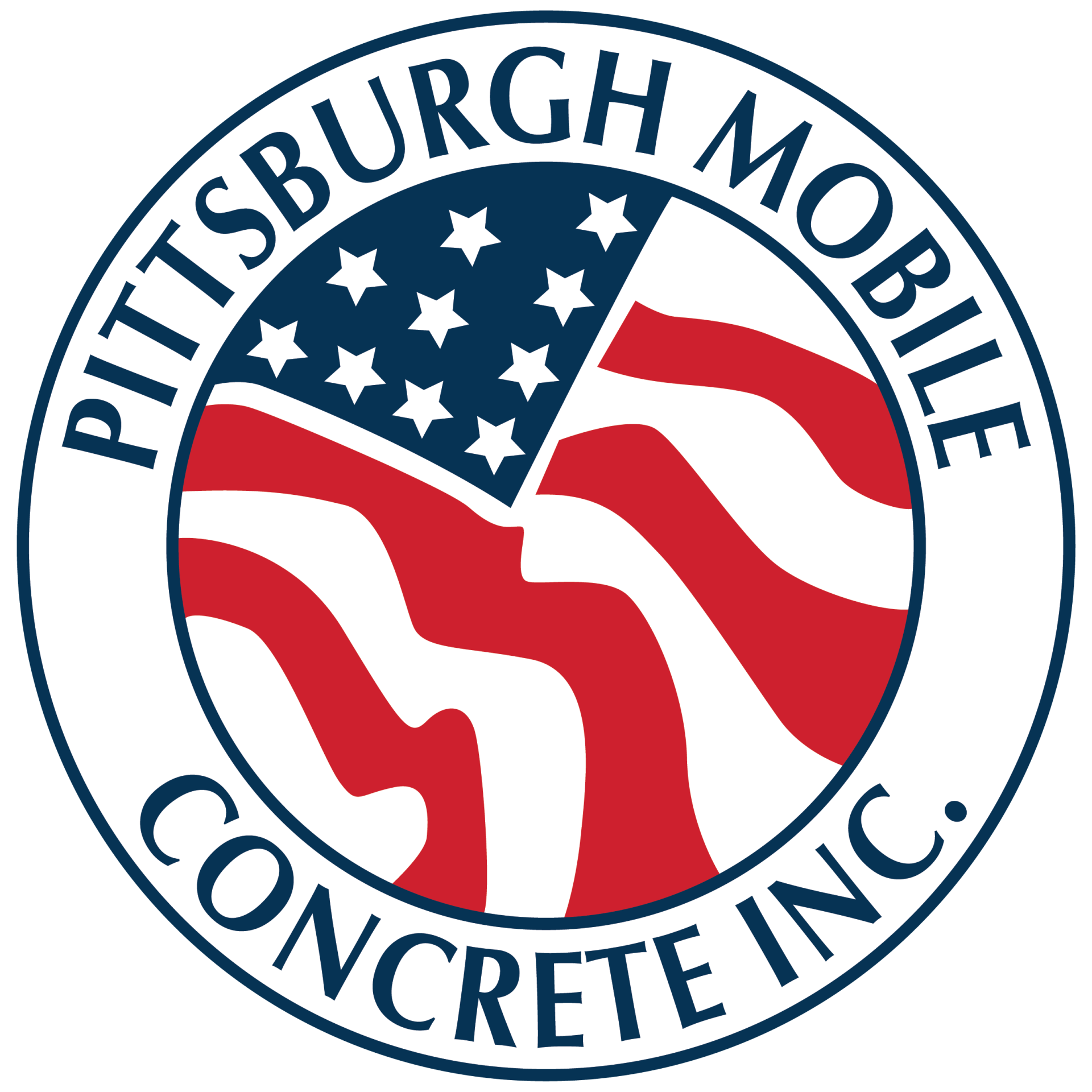Frequently Asked Questions About Our Concrete Delivery
-
Why should I pour with Pittsburgh Mobile Mixers?
Save time, money, and materials. We are a concrete delivery system that eliminates the waste factor. Excellent customer service, 24-hour service by appointment, and you only pay for what you use. We can alter the mix on site, no hot loads, and we are not ready to mix. We'll mix when you are ready! We are a plant on wheels.
-
SET TIME of Super HES?
“Weather Condition Related”
- Super HES 2-3 hour, Cold Weather
- SUPER HES 1-2 hours, Warm Weather
- Accelerators are added to reduce the time for proper curing and protection and speed up the start of finishing operations. We encourage concrete blankets in cold weather to retain heat.
-
How much time in advance do we need to place an order?
During the prime season (May-September), calling 2-3 days in advance at the least would be recommended, but you can always try on the fly.
-
Do you deliver on the weekends and at night?
ANSWER: YES, fees may apply.
-
What makes cement?
Materials containing an appropriate amount of Ca+ compounds, silica, alumina, and iron oxide are crushed, screened, and then heated in a kiln. These ingredients are typically limestone, marl, shale, iron ore, clay, and fly ash. The compounds then form tricalcium silicate, dicalcium silicate, tricalcium aluminate, and tatracalcium aluminoferrite.
-
What is your recommendation on curing concrete?
Recommendations from the PCA suggest that after the concrete is placed, satisfactory moisture content and temperature must be maintained (between 50°F-75°F) to cure the concrete. Adequate curing is vital to quality concrete. Curing strongly influences hardened concrete properties rate, such as strength, water tightness, abrasion resistance, volume stability, and resistance to freezing and thawing and deicer salts. Surface strength development can be reduced significantly when curing is defective. Curing is the chemical reaction called Hydration. Hydration is relatively rapid the first few days after the concrete is placed; retaining water during this period is important. Good curing means evaporation should be prevented or reduced. Pittsburgh Mobile Concrete recommends not sealing for 28 days and keeping concrete hydrated beginning the day after pouring. Hydrate with a sprinkler or soaking hoses, or cover with wet burlap. Available but not recommended are commercial compounds that coat the surface and seal moisture. REMINDER: Concrete hardens due to hydration, which is the chemical reaction between Cement and Water.
-
The contractor just poured my driveway, and now it’s raining?
If the concrete is not set enough, cover the surface with plastic.
-
When can I drive and park my car on my newly poured driveway and sidewalk?
- 1 week minimum for your driveway
- 2-day minimum for your sidewalk
-
Why do concrete surfaces flake and spall?
Concrete should be air-entrained to resist flaking and scaling. Pittsburgh Mobile’s concrete is air entrained unless requested to be non-entrained for footers or inside pours. Air entrapment provides tiny chambers for water to expand. Amount used is usually between/4-7% of the volume of concrete.
The water/cement ratio should be as low as possible to improve the durability of the surface. Too much water weakens the mix; less durable concrete will contribute to early flaking and scaling the surface. Finishing operations should not begin until the water sheen on the surface is gone, and excess bleed water has had a chance to evaporate. Suppose the finishing operations are started too soon, and the excess water is worked into the concrete. In that case, the concrete on the surface will have a water content that is too high therefore making it weaker and less durable.
-
How do I remove stains?
Stains can be removed from concrete with dry or mechanical methods or by wet methods using chemicals or water. Common dry methods include sandblasting, grinding, scabbing, planning, and scouring. Steel wire brushes should be used with care because they can leave metal particles on the surface that may later rust and stain the concrete. Wet methods involve applying water or specific chemicals according to the nature of the stain. The chemical either dissolves the staining substance so it can be blotted up from the surface of the concrete or bleaches the staining substance so it will not show.
For example, to remove blood stains, wet them with water, cover them with a layer of sodium peroxide powder and let them stand for a few minutes. Then rinse with water and scrub the stain vigorously. Follow the application of a 5% solution of vinegar to neutralize any remaining sodium peroxide.
-
Why does concrete crack?
Concrete cracks due to the volume change (shrinkage) when it dries out; joints allow the concrete to crack in a neat, straight line.
-
What is a Slump?
Slump is a measure of consistency, the relative ability of the concrete to flow.





